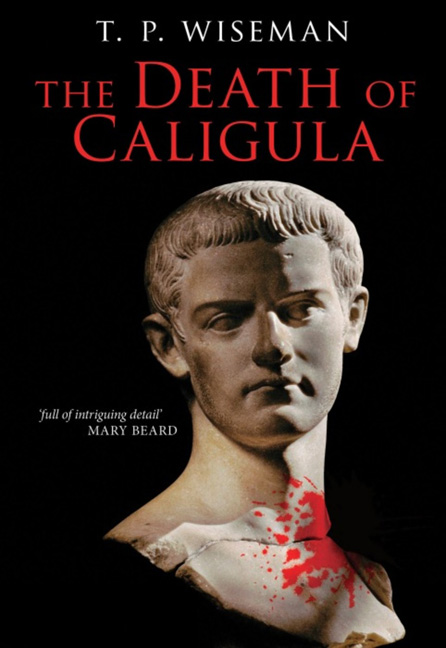Book contents
- Frontmatter
- Content
- Illustrations
- Acknowledgements
- Dedication
- Introduction
- Abbreviations and Select Bibliography
- Flavius Josephus, Antiquitates Iudaicae xix 1–273
- I Preface
- II The Conspiracy
- III The Assassination
- IV Panic on the Palatine
- V The Republic Restored
- VI Obituary
- VII The Claudius Coup
- Note on the Text
- Commentary
- Appendices:
- Index of Names
VI - Obituary
from Flavius Josephus, Antiquitates Iudaicae xix 1–273
- Frontmatter
- Content
- Illustrations
- Acknowledgements
- Dedication
- Introduction
- Abbreviations and Select Bibliography
- Flavius Josephus, Antiquitates Iudaicae xix 1–273
- I Preface
- II The Conspiracy
- III The Assassination
- IV Panic on the Palatine
- V The Republic Restored
- VI Obituary
- VII The Claudius Coup
- Note on the Text
- Commentary
- Appendices:
- Index of Names
Summary
201 Such was the end of Gaius. He had ruled Rome for four years less four months.
Even before he came to power he was perverse and ill-natured in the extreme—a slave to pleasure and a lover of malice, a man both paralysed in the face of fear and correspondingly murderous when in confident mood. Once he had his fill of power, he used it for one purpose only, the pursuit of outrageous violence. Irrationally generous to those who least deserved it, he got his
202 wealth by murder and injustice. Determined to appear—and to be— superior to the laws of gods and men, he was a slave to the flattery of the people. Whatever the law calls wicked, and condemns, he regarded as the punishment of virtue.
203 He gave no thought to friendship, however close or well deserving, and would inflict punishment for even the most trivial things on those he was angry with. He reckoned to be at war with anything to do with virtue, and once he had conceived a desire there could be no opposition to whatever he ordered.
204 For instance, he used to sleep with his own sister—and it was that above all that caused the Romans’ hatred of him to grow more violent. Such behaviour, unheard of for generations, provoked first disbelief and then loathing of the guilty man.
205 As for great imperial works undertaken for the benefit of contemporaries or posterity, not one can be attributed to Gaius. True, he had plans for a great harbour near Rhegium and Sicily to receive
206 the ships bringing corn from Egypt; that was certainly a splendid project, of the greatest benefit to navigation. But it never came to
207 anything. His plans lost their urgency and it was left half-finished, because his enthusiasm for useless expenditure on pleasures that benefited no-one but himself took away his ambition for undeniably greater things.
208 For the rest, he was a first-rate orator, well trained in both Greek and Latin; replying off the cuff to other people's elaborate and long-prepared speeches, even on the weightiest subjects he could immediately show himself more persuasive than anyone.
- Type
- Chapter
- Information
- The Death of CaligulaFlavius Josephus, pp. 30 - 31Publisher: Liverpool University PressPrint publication year: 2013



